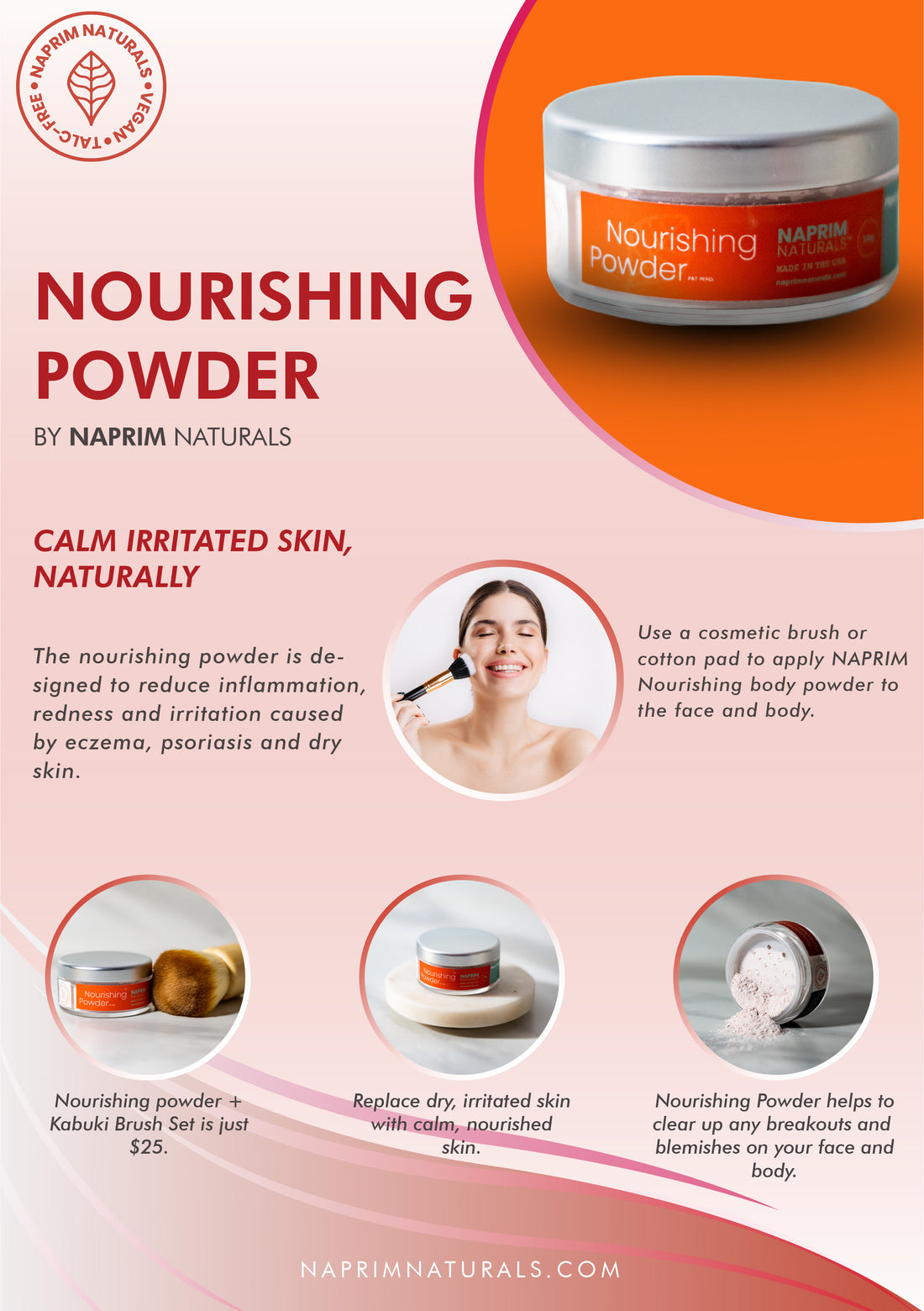
How to Soothe Eczema in the Summer Months - 6 Ways to Help
Share
Eczema is a dry, itchy rash that can occur any time of year; however, summer can pose particular challenges. Dry air, moisture from sweat, and dust that sticks to your sweat can all make eczema worse.
Fortunately, there are steps you can take to manage your eczema during the summer months so you can stay comfortable no matter what.
1. Drink Water
One of the best things you can do for your skin is to drink water. Your skin is the largest organ in the body, and often the first to show signs of stress when you get dehydrated. Drinking enough water helps your skin stay plump and moist from the inside.
Drinking lots of water can also help you regulate your temperature, which can help avoid flair-ups.
2. Control your sweat
Summer time often means summer sweat, and that’s bad news for your eczema. If you feel that you’re starting to get very sweaty, changing your clothes for clean and dry ones can help avoid a rash. According to BioMed Research International, managing your sweat is an effective way to manage your eczema during the summer.
3. Wear loose fitting clothing
Tight fitting clothing can rub on your skin, causing irritation, and also making it more likely that you’ll sweat. Loose fitting clothing can help your skin breathe, and make you more comfortable. Choosing cotton clothes when ever possible can also help with breathability.
4. Swimming is okay
Although staying dry is often a good management strategy, chlorinated water such as that found in a swimming pool can help manage your eczema as well. Recent research has found that diluted bleach can be helpful in treating some kinds of eczema, and that is essentially what swimming pool water is.
Everyone is different however, and you may experience a flair-up from one pool, but not from another. If you have a reaction after swimming in one, it’s worth it to try a different one.
No matter where you are swimming, rinse off after you get done with your swim. If you’re swimming at the ocean and no showers are available, bring a bottle of water to rinse off with after you get out of the ocean.
5. Control your allergies
If you know what your allergies are, controlling them can also be a helpful step in dealing with your eczema. Treating your allergies and avoiding known triggers when ever possible can go a long way to easing symptoms.
If you’re allergic to dust for example, keeping your house clear of it can help reduce flair-ups by making triggers less available to cause them. Seeing a doctor to help treat your allergies may also be a helpful step in reducing outbreaks caused by allergies.
6. Nourish the skin
Keeping the skin nourished can go a long way in reducing inflammation and calming irritated skin. Dry skin can be eczema’s worse enemy, so it is very important to use nourishing products to soothe the effects of eczema. It’s best to use products that contain natural ingredients and are safe to use all over the body. A nourishing powder that is talc-free can be great for keeping the skin soft and blemish free.
Eczema is usually worse in the winter rather than the summer, with dry air making breakouts worse, but summer has its own challenges. By being aware of the potential problems caused by summer air and activities, you can take steps to minimize outbreaks.
For more information on NAPRIM Natural’s Nourishing Powder that is designed to safely nourish the skin and reduce the effects of eczema, psoriasis and dry skin, click here.
